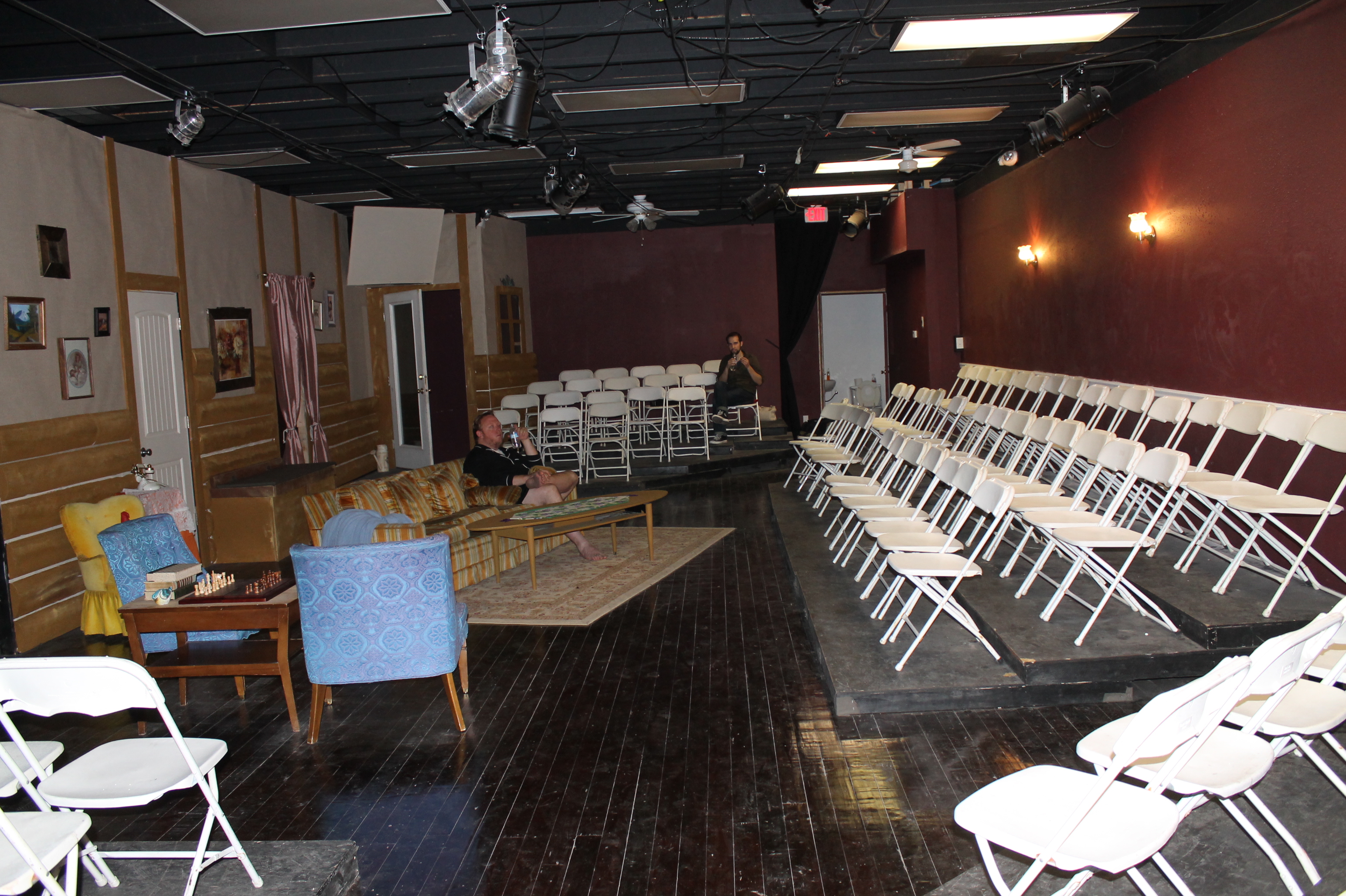David Kranes is a seemingly inexhaustible writer with 50 plays and 7 novels to his credit, as well as numerous stories, screenplays, and lectures. Mr. Kranes is also a professor emeritus from the University of Utah (he retired in 2001 after 34 acclaimed years) and founded the prestigious Sundance Playwrights Lab where he served as artistic director for 14 years. Now his work will be seen and celebrated at Salt Lake Acting Company’s annual fundraiser. SLAC is producing A Loss of Appetite, a play about loss and new beginnings, as part of their continued mission to support the production of new work.
 UTBA: Many of our readers might be new to your work. How would you describe yourself?
UTBA: Many of our readers might be new to your work. How would you describe yourself?
KRANES: Mostly, I try to stay away from self-description. I think musing on: What kind of a writer am I? is a fruitless occupation (or pre-occupation). Marking one’s territory isn’t a good thing. What I can say is: I’ve always been a writer who is driven to write. What form that writing takes has varied quite widely. What that writing is about….again: that’s best to leave to others.
UTBA: You are considered a tireless proponent for emerging writers. What is it about developing artists that attracts your attention?
KRANES: Being allowed to speak through words on the page quite possibly saved my life. Certainly, it gave me a reason to be. So I have intense empathy for others who painfully want to speak. If I can help them, support them, I try to do so. Writing is an ecstatic enterprise. But it is also a solitary enterprise. So I have tried–with those emerging writers I have believed in–to make them feel less alone…..and to attempt to give them some of the tools of combat.
UTBA: How did you know writing was for you? Why playwriting specifically?
KRANES: Utterance (aloud), growing up, was a problem for me. I felt I didn’t have any words thus didn’t have any self. When I could utter on paper, everything changed. From that point forward, it was simply a matter of giving myself permission to write.
My first success was in playwriting. But it’s more than that. Theater is a communal enterprise. And there are times when I desperately need the company of others.
UTBA: How did A Loss of Appetite come about?
KRANES: Two dear and long-time theater friends, Rich & Mimi Rice had reached “retirement” age and told me they’d love to have a play they could tour in together. That hope stuck in my head; if I could, I wanted to give them a gift. Right after they’d expressed that wish, my wife and I took a cruise up the coast of Norway. I had my laptop with me. I’d seen a great two-character scene in the dining room of a hotel in Bergen, the night before embarking. So I spent 2 hours each cruise day in one of the ships lounges, shaping what had been germinated from the hotel incident into the first draft of A Loss of Appetite.
UTBA: Are observed or experienced incidents often where your ideas for plays come from?
KRANES: It’s more likely that my plays come from observed or experienced environments. Strong environments affect me deeply. I’m more likely to “use” an experienced environment and then ask myself: “What kind of a dramatic moment could most effectively happen here?”
UTBA: You’ve worked with SLAC several times. What is special about your relationship with them?
KRANES: What’s been “special” is: they’ve liked my work and have been eager to read the “next” play. The greatest gift any playwright can be given is that of a “home,” a venue which is eager about and produces his/her work. Playwrights with homes only have to worry about telling their story dramatically. They don’t have to worry about tilting a play left or right to appeal to this or that theater. A “home” allows a playwright to write his/her play more directly, more purely.
UTBA: What do you think is the major theme, subject, and/or content difference between your plays and novels?
KRANES: I think that theme/subject in plays doesn’t vary much from that in prose-fiction. I’m more likely to experiment with the boundaries of form in plays. And I’m not sure that’s always a good thing.
UTBA: Being an East Coaster in Utah can be a culture shock, yet much of your work after you relocated became about the West. What is/was it about the landscape and culture that captured you?
KRANES: I like your word, “captured.” The truth is: I felt that I was held captive in the East. I won’t go into the reasons. So the West–in all its openness and sky–didn’t “capture” me at all. It set me free.
UTBA: Family dynamics, specifically fathers and sons, are also reoccurring themes in your work. Why do you think that is such a resonating subject for you?
KRANES: That’s a question that sort of answers itself in the asking. One would be right to assume that the father-and-son “thing” has been a powerful element in my life. And it has. Amusingly, when I was younger, there was no question of who I was in a father-son story; I was the son. But then–as years went by and I was the father of 2 boys–who-I-was got a little bit blurred. Lately: there’s no question: I’m the father.
UTBA: How do you think the role of a playwright or the process of getting a play produced has changed in the theatre?
KRANES: There are more playwrights, more theaters. There are more audience-specific theaters (gay theatres, Latino theaters, Asian-American theaters, etc)….and I think that’s a very good thing. Plays are best when they speak to the local “us.” When “we”–whatever the strongest “we” is–laugh together, cry together, grow unsettled together–and know we’re not alone….that is a good thing. Certainly theater has been impinged upon by film, television, rap music, atonal music, cubism (the list goes on). And that bombardment is a good and enlivening thing….as long as the playwright understands that the bombardment is just that–something that newly decorates the play–but that the “engine” of theater is a constant.
UTBA: What do you think is the biggest mistake you see new playwrights make?
KRANES: Thinking that films or television are theater. They’re not theater; they’re very far–in form and impulse–from theater. New playwrights set off to write plays with little or no sense of the dramatic form or of the considerable cannon of dramatic literature.
UTBA: What changes would you like to see?
KRANES: Some changes–thanks to Tony Kushner–are happening. Theater is–by its nature–cosmic: a dynamic between Man/Woman and the Fates/Gods/(Use your own word). It’s vast. It reaches up to the skies. And theater is body-centered and gestural. Mostly, I think, because of the bad influence of tv, theater shrank into–too often–being about talking heads in a small room. Angels In America began to give other playwrights permission to knock the walls down, take the roof off, and think more largely.
UTBA: What do you want audiences to take away from your work?
KRANES: If something stays with them and won’t leave for a while–if something is memorable–I’ll be happy.





